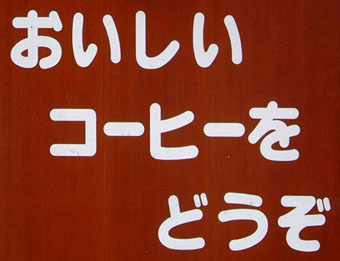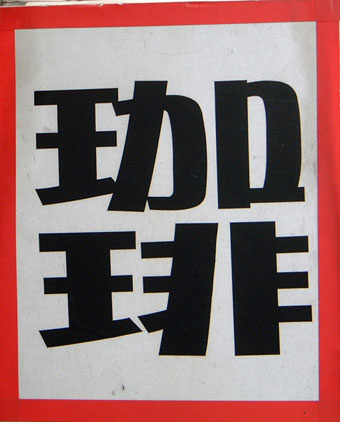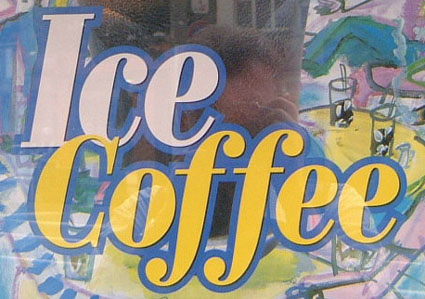KōhiiCoffee is one of the great international beverages of the world. The word 'coffee', like the word 'chocolate', is one of the most international words in the world, found in probably most languages on earth. Due its international spread, it has also had time to become one of the most localised words in the world, with spellings or pronunciations varying according to the host language. The Japanese word for 'coffee', kōhii, shares this ambivalence about its identity. On the one hand, 'coffee' is regarded as non-Japanese, a beverage with foreign or Western origins. The official spelling of kōhii is コーヒー in katakana, marking it as a gairaigo (Western borrowing). Japanese travelling abroad will regularly request kōhii in a restaurant, imagining that they are using an English word. The English spelling 'coffee' is universally recognised. And yet, the word kōhii is also thoroughly localised. The pronunciation, while intelligible to American waitresses in the appropriate context, is fully Japanised. The word appears to be originally based on the Dutch word 'koffie'. If imported from English today, it would become kofii (コフィー) or perhaps kafii (カフィー). Kōhii is old enough to have its own Chinese characters, 珈琲. (Notice that these are slightly different from the characters used in Chinese, which are 咖啡.) This ambivalence is well reflected in the ways that kōhii is written in public signs and advertisements. The standard rendition, コーヒー, is alive and well:
The old Chinese-character rendition, 珈琲 is found with surprising frequency:
The characters are still used because of their genteel elegance, cultural richness, and old-fashioned leisurely air, quite different from the no-nonsense, businesslike look of コーヒー. The English spelling 'coffee' is also quite familiar, from the labels on canned beverages and vending machines to signs like the following, posted in coffee shops as a part of a promotional campaign for iced coffee:
This English poster is really Japanese in disguise -- only the ultra-cosmopolitan would read it as anything other than アイスコーヒー aisu kōhii! What it attempts to do is lend an air of international sophistication to entice consumers to come in and partake of a cooling glass. Kōhii forms an interesting contrast with an older borrowing, the word tabako, which despite having the right to be even more thoroughly naturalised than kōhii, is still unable to shake off its foreign origins. A Google search in August 2003 revealed the following pattern of usage on the Internet.
The English form 'coffee' was not frequently found in running text, tending to be restricted to special cases such as the names of companies, etc. For other writings of the word kōhii, see Flavor Information site (in Japanese). |
| Previous Next |


